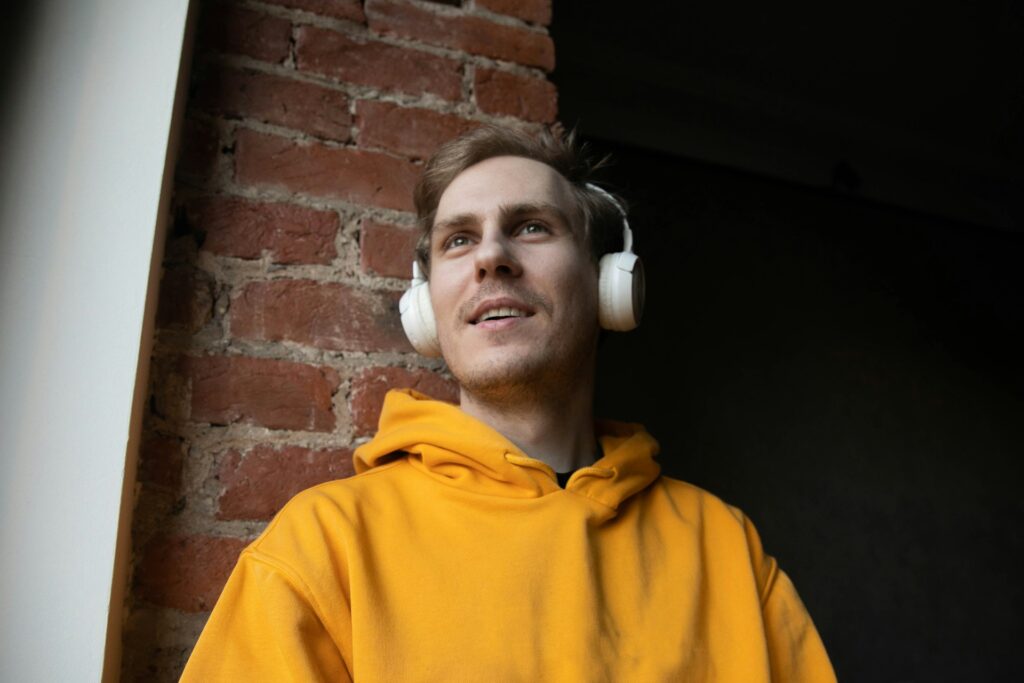Some days, no amount of positive thinking or self-motivation seems to work.

You’re just drained—physically, mentally, emotionally. However, those are the days when kindness matters the most. Not the flashy, Instagrammable kind of self-care, but the real, quiet acts of grace you offer yourself when you feel like you’ve got nothing left. Here’s how to be your own soft place to land when everything inside you feels too heavy to carry alone.
1. Lower the bar—and then lower it again.

When you’re running on empty, the goal isn’t to push through or keep achieving—it’s to survive gently. On days like this, brushing your teeth or drinking a glass of water is an achievement worth acknowledging.
Trying to meet your usual standards when you’re exhausted only breeds more shame. Kindness means meeting yourself where you are, not where you wish you were. It’s a quiet rebellion against the part of you that only thinks you’re worthy when you’re performing at 100%.
2. Treat yourself like someone who deserves softness.

It’s strange how easy it is to show compassion to everyone else while speaking cruelly to yourself. Today, imagine you’re caring for someone you love deeply—a sibling, a close friend—who feels like they’re falling apart. You wouldn’t tell them to toughen up or “just get over it.” You’d offer patience, hugs, warmth, no questions asked. You deserve that exact same level of unconditional care from yourself, even if it feels unfamiliar at first.
3. Ditch the shame about doing “nothing.”

The pressure to be productive doesn’t take days off, but you’re allowed to. Resting isn’t lazy, selfish, or a waste of time. It’s a biological and emotional necessity, especially when you’re drained beyond your limits.
Today’s kindness looks like letting the dishes pile up if needed. It looks like cancelling plans. It looks like choosing yourself over the crushing expectation to always be “doing” something. Your worth isn’t tied to your output—never was, never will be.
4. Nourish your body in the simplest ways possible.

Forget complicated meal plans or perfect nutrition today. Nourishment, in its purest form, means giving your body something, anything, that sustains you without shame or pressure. It might be toast, a smoothie, or a snack you loved as a kid. It doesn’t have to be healthy, perfect, or Instagram-worthy. Feeding yourself when you’re running on fumes is a radical act of self-respect in a world that demands endless performance.
5. Let yourself rest without needing to “earn” it.

You don’t have to cross off three tasks, finish your inbox, or clean the house before you’re allowed to collapse. Rest is not a reward you earn for productivity—it’s a basic human right. Lay down in the middle of the afternoon if you need to. Put your phone on silent without guilt. Fall asleep during a movie. Today, permission is the ultimate kindness you can give yourself: permission to simply stop trying so hard.
6. Allow your pace to slow to a crawl, and be okay with it.

Moving slowly isn’t something to be ashamed of. It’s a sign you’re listening to what your body and heart are desperately asking for: space, gentleness, breathing room. Walk slower, think slower, speak slower. Let the world race ahead without you if it needs to. True strength sometimes looks like choosing stillness when everything else demands motion.
7. Talk to yourself like you would to someone scared and overwhelmed.

Imagine yourself at your most fragile—then offer words that are soft, nurturing, and nonjudgemental. No pep talks. No “you should be stronger by now.” Just pure, steady reassurance. You’re allowed to say, “This is hard, and it’s okay that it’s hard.” You’re allowed to whisper, “I’m still proud of you.” Building an inner voice that’s kind even when life feels unkind is how you truly become your own safe place.
8. Let your feelings exist without trying to fix them.

You don’t have to analyse, reframe, or justify how you feel today. Let sadness be sadness. Let anger be anger. Let exhaustion be exhaustion without trying to immediately label it as a “growth opportunity.” Your feelings aren’t problems to solve—they’re visitors to sit with. They pass through more quickly when you stop locking the door against them or pretending they shouldn’t be there in the first place.
9. Remind yourself that surviving is succeeding.

On days when breathing feels like the only thing you can manage, remind yourself: staying here, choosing not to give up, quietly enduring, is a victory most people never even see. There’s no gold star for surviving the hard days, but that doesn’t make it any less heroic. The courage it takes to stay alive and keep trying deserves just as much recognition as any external achievement.
10. Let small comforts be enough.

When you’re empty, you don’t need grand fixes. You need tiny, tangible comforts that remind you the world still holds softness: a warm blanket, your favourite socks, a TV show you’ve watched a hundred times. Small comforts won’t erase your struggles, but they give you little pockets of ease to cling to. They’re not silly, and they’re not a waste of time. They are survival tools, and they matter.
11. Set painfully tiny goals and celebrate them.

When the world feels overwhelming, the smallest tasks deserve the biggest celebrations. Drinking water, brushing your teeth, texting a single word back—all of it counts today. Let yourself notice every little thing you manage, no matter how small. You’re not weak for needing smaller victories. You’re wise enough to understand that sometimes survival itself is worth cheering for.
12. Let other people support you without feeling guilty about it.

Reaching out doesn’t make you weak, dramatic, or a burden. It makes you human. Text someone. Ask for a favour. Let someone sit with you in the dark without feeling like you have to entertain or explain yourself. Letting people in when you’re low teaches you that your value isn’t tied to being strong all the time. It’s okay to need help. It’s okay to be seen struggling without losing your worth.
13. Challenge the voice that tells you that you’re failing.

Your brain will tell you that you’re lazy. It’ll tell you that you’re falling behind. It will whisper all kinds of cruelty in your most fragile moments. But you get to talk back. Tell yourself, “I’m doing my best with what I have today.” Tell yourself, “Surviving today is enough.” Reclaim the narrative. You are not failing. You are fighting battles most people can’t even see.
14. Focus on right now, not forever.

When you’re exhausted, your mind loves to project that feeling into the future: “I’ll always feel like this,” “I’ll never get it together.” But forever doesn’t exist today. All that exists is now. What do you need right now? What tiny act of care could you offer yourself in this breath, in this moment? Focus there. The future will take care of itself later.
15. Remember: low days are not the end of your story.

It’s easy to believe that feeling hollow means you’re broken beyond repair. But emptiness is a feeling, not a final verdict on who you are or what your life can be. You’re still growing, still worthy, still becoming—even when you can’t feel it yet. Low days are chapters, not conclusions. Your story is still unfolding, and this hard, heavy page isn’t the whole book.


